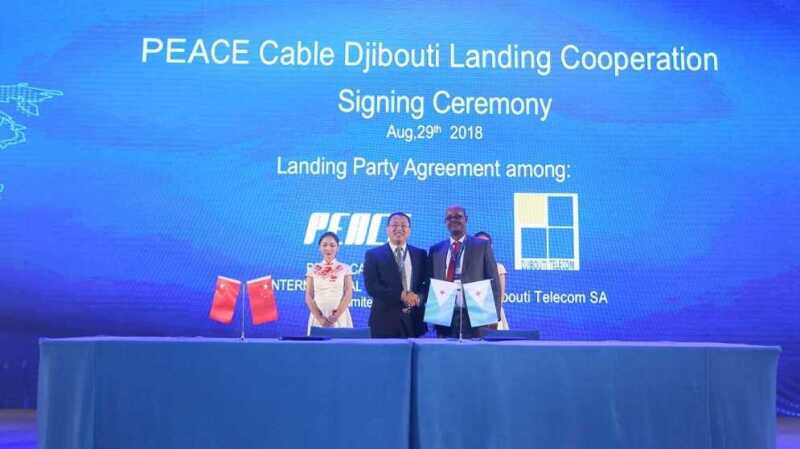The company says that the remaining landing party agreements will be signed over the next two weeks, representing a key milestone in the delivery plan, which includes the permit application work in each country. All parties are backing an “open system” concept to create an efficient way for improved latency, high-capacity, and carrier-neutral bandwidth services for regional customers.
Geographically the Peace Cable will connect the three most populated continents in the world: Asia, Africa and Europe with backbone connectivity in Pakistan, Djibouti, Egypt, Kenya and France providing critical interconnection to Asia, Europe, and Africa economic corridors.
"After nearly two months of consultation, the cooperation and negotiation between the Peace Cable and landing partners has been completed,” said Sun Xiaohua, COO of Peace Cable.
“Thanks to all the partners for their support and I hope that Peace Cable will bring added economic value to the region in the near future."
Huawei Marine started survey work at the turn of the year and, at the time, said that the cable will use 200Gbps DWDM technology and will provide up to 60Tbps design capacity. “The Peace system will provide a new information expressway for the interconnection among Asia, Africa and Europe by connecting with the existing land and subsea cables, greatly reducing the route length and latency between China-Africa and China-Europe.”
Danish A. Lakhani, CEO of Cybernet, said: “We are excited about working on the Peace project and the numerous benefits that the Peace Cable will bring to Pakistan and its digital economy. In addition to providing much needed redundancy to Pakistan’s internet infrastructure and reducing latency to Western destinations, this ultra-high capacity cable will usher in a new era of affordable Gigabit services in the country.”

“Djibouti Telecom’s objective is to strengthen its regional hub position, the crossroad of three continents, Asia, Africa and Europe. PEACE and DARE [Djibouti Africa Regional Express] shall collaborate to achieve the digital and economic transformation of Republic of Djibouti,” added Mohamed Assoweh Bouh, general director of Djibouti Telecom.





